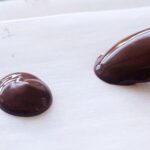
The first UK high street beauty business to certify as a B-Corp in 2017 meant Jo Chidley’s Beauty Kitchen had high standards to set.
Mintel’s sub-zero waste report in 2019 highlighted how much more aware customers have become of the potential impact of beauty products and their packaging waste. Yet, according to Euromonitor, the industry produces 120 billion units of packaging per year, most which is thrown out and single use.
Global Data’s report, “Innovation Scenarios in Sustainable Packaging Materials,” reveals that two-thirds of consumers worldwide think living an ethical or sustainable lifestyle is important to creating a feeling of well-being. Yet even vegan products can be 100% synthetic, rather than made of natural ingredients.
“There is still major work to be done,” 48-year-old Chidley says. “There is a shocking amount of single use plastic and misleading products on retail shelves; for example, products that use zero waste packaging, but still contain microplastics inside.

Jo Chidley, co-founder of Beauty Kitchen
Beauty Kitchen
“Consumers don’t need to use less products to produce less waste,” the chemist and botanist continues. “Companies need to design products by using more sustainable principles in biological and technical cycles so there is no waste.
“There is a great opportunity for packaging material producers to find solutions that will answer the sustainability issues of some materials like plastic.”
Chidley and her husband Stuart decided to start Beauty Kitchen in 2010, after trying out various business models while they were still working full time for other companies.
“We decided to take the plunge once we had established what our most unique selling points would be,” she recalls. “The beauty category is a very busy place, with lots of people starting out and a lot of mature brands with big marketing budgets. However, we saw a gap where we could disrupt through our sustainability ethos. This was at a time where no one was thinking multi-attribute and everything was focussed on being the most natural (formulations) or single attribute certification, for example, vegan.”
The pair have embraced “cradle to cradle,” which is a globally recognized measure of products made for the circular economy.
To receive certification, products are assessed for environmental and social performance across five critical sustainability categories: material health, material reuse, renewable energy and carbon management, water stewardship, and social fairness.
“We live in a world of reduce, reuse, recycle when what we need are circular flows of goods that we ‘use’ and ‘consumable’ with zero or positive carbon footprints,” Chidley says.
The company, which sees Weleda and Lush among its competitors, sells lotions, scrubs, masks, cleansers, soap and shampoos, to name a few. Many of the products come in compostable pouches, printed with vegetable inks and made with containers that have been designed to be reused.
Customers are encouraged to return products to the store which can be washed and reused. Any empties can be dropped off at Holland & Barrett stores in the UK, Ireland, Netherlands and Belgium, or can be posted back for free.
“People don’t understand what natural and organic mean,” says Chidley. “Most people just want products that work, smell great, feel great and are good value.
“We don’t have all the answers and we aren’t claiming that we are perfect,” she adds, as she details plans to launch 1,000 “refill” stations over the next two years, where customers can use their old containers to refill with new products.
“But we want and need to try for the sake of the planet.”
source: forbes









